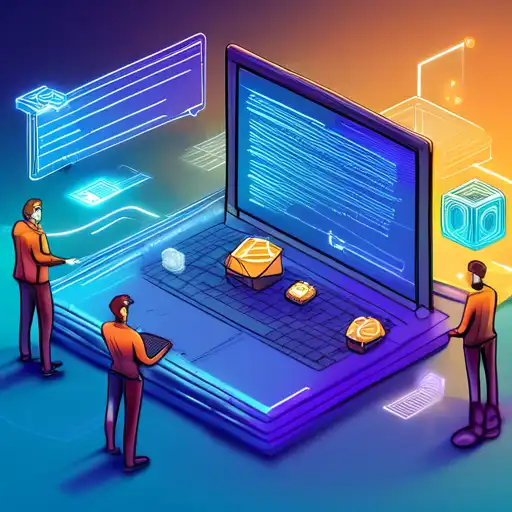Introduction to Smart Contracts
Smart contracts represent a pivotal innovation in blockchain technology, automating agreements without the need for intermediaries. These self-executing contracts with the terms of the agreement directly written into code have revolutionized how we think about trust and transactions in the digital age.
How Smart Contracts Work
At their core, smart contracts are programs stored on a blockchain that run when predetermined conditions are met. They are used to automate the execution of an agreement so that all participants can be immediately certain of the outcome, without any intermediary’s involvement or time loss.
The Benefits of Smart Contracts
Smart contracts offer numerous advantages, including:
- Autonomy – You’re the one making the agreement; there’s no need to rely on a broker, lawyer, or other intermediaries.
- Trust – Your documents are encrypted on a shared ledger.
- Backup – Imagine if your bank lost your savings account. On the blockchain, each and every one of your friends has your back.
- Safety – Cryptography, the encryption of websites, keeps your documents safe.
- Speed – You’d ordinarily have to spend chunks of time and paperwork to manually process documents.
- Savings – Smart contracts save you money since they knock out the presence of an intermediary.
Challenges and Considerations
Despite their potential, smart contracts are not without challenges. Issues such as the immutability of blockchain, the complexity of coding, and legal recognition pose significant hurdles. However, ongoing advancements in blockchain technology continue to address these concerns.
Real-World Applications
From finance to real estate, smart contracts are being utilized across various sectors. They facilitate everything from automatic payments to the seamless transfer of property titles, showcasing their versatility and efficiency.
Future of Smart Contracts
As blockchain technology evolves, the potential for smart contracts expands. With the integration of artificial intelligence and the Internet of Things (IoT), smart contracts are set to become even more powerful, automating complex processes across industries.
Conclusion
Smart contracts are a cornerstone of blockchain technology, offering a secure, efficient, and transparent way to execute agreements. As the technology matures, we can expect to see even broader adoption and innovative applications that further demonstrate their transformative potential.
